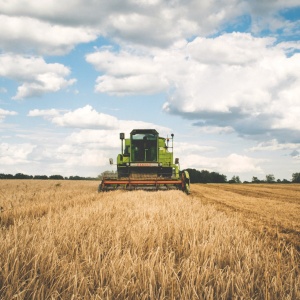
This paper studies the relationship between food system drivers and sustainability for a sample of low-, middle- and high-income countries. The aim of the research is to provide a clearer understanding of what drives food system sustainability, in order to better target interventions and investments to transform the food system.
12 drivers are studied (some of them are measured by more than one indicator):
- Population demographic transition
- Increase in consumers’ income
- Urbanisation and associated changes in lifestyle
- Growing attention paid to diet
- Technological innovation
- Intensification of the agricultural sector
- Improved access to infrastructure (specifically, access to the electrical grid)
- General degradation in agroecological conditions
- Climate change
- Policies facilitating or mitigating trade (measured by change over time in food exports)
- Internationalisation of private investments
- Growing concerns for food safety
Food system outcomes are measured on a single composite index that incorporates four dimensions of sustainability: food security and nutrition, environment, social and economic.
The paper finds that most of the drivers studied have a weak or very weak correlation with the composite index measuring food system outcomes. The three strongest correlations are:
- Food system sustainability is strongly positively correlated with merchandise and services trade per capita, a proxy indicator for internationalisation of private investments in food systems. The countries contributing most strongly to this correlation are generally middle-income countries. The authors suggest this correlation may reflect the impacts of trade and globalisation, such as stronger knowledge exchange and openness to international markets, while noting that trade can have negative impacts such as promoting unhealthy dietary patterns and putting pressure on natural resources.
- Population growth is strongly negatively correlated with food system sustainability, and this correlation is seen most in low-income countries. The authors note that stresses on food systems from population growth may be made worse by other pressures, such as increased consumption per capita, and lifestyle changes associated with urbanisation.
- Change over time in agricultural area, used by the paper as a proxy for agricultural intensification, is moderately negatively correlated with food system sustainability. The authors note that agricultural expansion is often linked to deforestation, and that land conversion takes place largely in the Global South (the authors point out that such conversions may be linked to “land grabbing”).
Abstract
At present, our ability to comprehend the dynamics of food systems and the consequences of their rapid ‘transformations’ is limited. In this paper, we propose to address this gap by exploring the interactions between the sustainability of food systems and a set of key drivers at the global scale. For this we compile a metric of 12 key drivers of food system from a globally-representative set of low, middle, and high-income countries and analyse the relationships between these drivers and a composite index that integrates the four key dimensions of food system sustainability, namely: food security & nutrition, environment, social, and economic dimensions. The two metrics highlight the important data gap that characterises national systems’ statistics—in particular in relation to transformation, transport, retail and distribution. Spearman correlations and Principal Component Analysis are then used to explore associations between levels of sustainability and drivers. With the exception of one economic driver (trade flows in merchandise and services), the majority of the statistically significant correlations found between food system sustainability and drivers appear to be negative. The fact that most of these negative drivers are closely related to the global demographic transition that is currently affecting the world population highlights the magnitude of the challenges ahead. This analysis is the first one that provides quantitative evidence at the global scale about correlations between the four dimensions of sustainability of our food systems and specific drivers.
Reference
Béné, C., Fanzo, J., Prager, S.D., Achicanoy, H.A., Mapes, B.R., Alvarez Toro, P. and Bonilla Cedrez, C., 2020. Global drivers of food system (un)sustainability: A multi-country correlation analysis. PloS one, 15(4), p.e0231071.
Read the full paper here. See also the Foodsource chapter An overview of food system challenges.







Post a new comment »